About
About NCDC
The National Institute of Communicable Diseases (NICD) had its origin as Central Malaria Bureau, established at Kasauli (Himachal Pradesh) in 1909 and following expansion was renamed in 1927 as the Malaria Survey of India. The organization was shifted to Delhi in 1938 and called as the Malaria Institute of India (MII). In view of the drastic reduction achieved in the incidence of malaria under National Malaria Eradication Programme (NMEP), Government of India decided to reorganize and expand the activities of the institute to cover other communicable diseases. Thus, on July 30, 1963 the erstwhile MII was renamed as NICD to shoulder these additional responsibilities.
The institute was established to function as a national centre of excellence for control of communicable diseases. The function of the institute also included various areas of training and research using multi-disciplinary integrated approach. The institute was, in addition, expected to provide expertise to the States and Union Territories (UTs) on rapid health assessment and laboratory based diagnostic services. Surveillance of communicable diseases and outbreak investigation also formed an indispensable part of its activities.
The NICD campus at Delhi covers an approximate areas of 15.35 acres which includes the former official residence of Commander in Chief of the Indian Army and now houses the administrative block, library, divisions of epidemiology and parasitic diseases. The Institute is one of its unique kind in the city of Delhi having so much of green area with about 80% as open area. The Institute has got three large sprawling lawns with well maintained plants as well as a number of smaller garden islands. The headquarters of the directorate of National Anti Malaria Programme (NAMP), now named as National Vector Borne Disease Control Programme (NVBDCP) is also located in the NCDC campus. The facilities available in the campus include research laboratories, a large lecture hall, well equipped conference and seminar rooms, animal house, fish hatcheries and two hostels with a total capacity to accommodate about 125 trainees and a well maintained canteen. The campus has the facilities of play grounds for volleyball, badminton etc. as well as for indoor facilities like carom, gymnasium etc.
The Institute is under administrative control of the Director General of Health Services, Ministry of Health and Family Welfare, Govt. of India. The Director, an officer of the Public Health sub-cadre of Central Health Service, is the administrative and technical head of the Institute.
The Institute has its headquarters in Delhi and has 8 out-station branches located at Alwar (Rajasthan), Bengaluru (Karnataka), Kozikode (Kerela), Coonoor (Tamil Nadu), Jagdalpur (Chattisgarh), Patna (Bihar), Rajahmundry (Andhra Pradesh) and Varanasi (Uttar Pradesh).
There are several technical Divisions at the headquarters of the institute i.e. Centre for Epidemiology and Parasitic Diseases (Dept. of Epidemiology, Dept. Parasitic Disease) Division of Microbiology, Division of Zoonosis, Centre for HIV/AIDS and related diseases, Centre for Medical Entomology and Vector Management, Division of Malariology and Coordination, Division of Biochemistry and Biotechnology.
In each division there are several sections and laboratories dealing with different communicable diseases. The divisions have well equipped laboratories with modern equipments capable of undertaking tests using latest technology. The activities of each division are supervised by an officer in-charge, supported by medical and non-medical scientists, research officers and other technical and paramedical staff. Every Division is equipped with its own independent Seminar Room. The institute has a 24 x 7 Disease Monitoring Cell operating round the clock to respond to enquiries related to disease outbreak along-with video-conferencing facility to interact with the network of disease surveillance centres in the states and districts. The branches are also well equipped and staffed to carry out field studies, training activites and research..
Who's Who
Who's Who
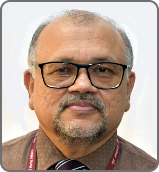
Prof (Dr.) Atul Goel
DGHS & Director NCDC

Dr. Anil Kumar
Principal Advisor

Dr S Venkatesh
Consultant
Viral Hepatitis & Biotechnology Division

Dr. Sandhya Kabra (Micro)
MBBS, MD
Additional Director & Head

Dr. Partha Rakshit(Micro)
MBBS, MD
Joint Director(VH)

Dr. Preeti Madan(GDMO)
MBBS, MD
CMO (NFSG), NHM, MOH&FW (VH)

Dr. Hemlata (Micro)
MBBS, MD
Deputy Director (VH)

Dr. Hema Gogia (PH)
MBBS, MD
Assistant Director (VH)
Central Library

Dr. Sandhya Kabra (Micro)
MBBS, MD
Additional Director & Head

Shri Pushpendra Singh Hada
AL&IO
CENTRE FOR AIDS AND RELATED DISEASES (CA&RD)

Dr. Aarti Tewari (Micro)
MBBS, MD (Microbiology)
Joint Director & Head

Dr. Bibhash Nandi (Micro)
MBBS, MD (Microbiology)
Deputy Director
Centre for Arboviral and Zoonotic diseases

Dr. Monil Singhai (Micro)
MBBS MD Microbiology
Joint Director

Dr. Alka Singh
MBBS (LHMC)
Medical Officer
Centre for Bacterial Disease and Drug Resistance and Antimicrobial Resistance Containment

Dr. Lata Kapoor (Micro)
MBBS, MD (Microbiology)
Additional Director & Head

Dr Madhu Raikwar
Sr. CMO (SAG)

Dr. Madhumita Barua (Micro)
MBBS, MD (Microbiology)
Deputy Director

Dr. Trupti Manohar Shende (Micro)
MBBS, MD (Microbiology)
Assistant Director

Dr Dhara B Shah (Micro)
Assistant Director
Centre for Environmental & Occupational Health, Climate Change & Health

Dr. Aakash Shrivastava (GDMO)
MD, MPH, PhD
Addl. Director & Head

Dr Aniket Chowdhury (PH)
Assistant Director

Dr Raghavendra Appasaheb Honnakamble (PH)
MBBS, MD
Assistant Director
Centre for Medical Entomology and Vector Management

Dr. Tanzin Dikid (PH)
MBBS, MD
Joint Director & Head
Centre for One Health

Dr. Simmi Tiwari (PH)
MBBS, DNB(SPM), PGDHHM
Joint Director & Head

Dr. Ajit Dadaji Shewale (PH)
MBBS, MD (CM), DNB(SPM), DHRM
Joint Director

Dr. Tushar N. Nale (PH)
MBBS MD (CM) DHRM
Deputy Director

Dr Jitesh Shamsundar Kuwatada (PH)
MBBS, MD Community Medicine
Assistant Director
Division of Statistical Monitoring & Evaluation

Sh. Sunil Prakash Bharadwaj
Ad. Director & Head
Department of Parasitic Disease

Dr. Vinay Garg (PH)
M.B.B.S, M.D.(CHA), D.T.C.D
Joint Director & Head

Dr. Suhas Sambhaji Dhandore
Joint Director

Dr. Ankur Garg (PH)
MBBS, MD
Deputy Director

Dr. Shubha Garg (Micro)
M.B.B.S, M.D(Microbiology)
Deputy Director
Planning Budgeting & Administration (PBA)

Dr. Tanzin Dikid (PH)
MBBS, MD
Joint Director & Head
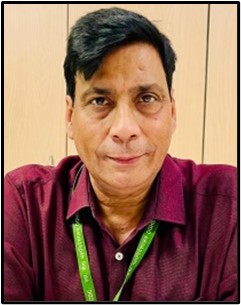
Sh. Prakash Doval
Assistant Director (Admn.)
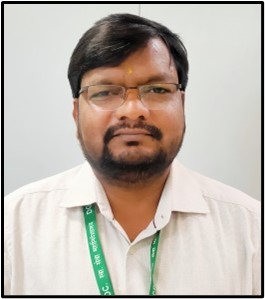
Sh Balram Kashyap
Administrative Officer (I) & Assistant Security Officer
Public Health Preparedness & NCD and Division of Biochemistry & Toxicology

Dr. Meera Dhuria (PH)
MBBS, MD, MBA (HCA)
Joint Director & Head

Dr. Priyanka Kundra
MBBS, DNB (Anesthesia)
Senior Medical Officer
Epidemiology Division

Dr. Avdhesh Kumar
Additional Director(PH) & Head

Dr. Arti Bahl
MBBS, MD
Additional Director
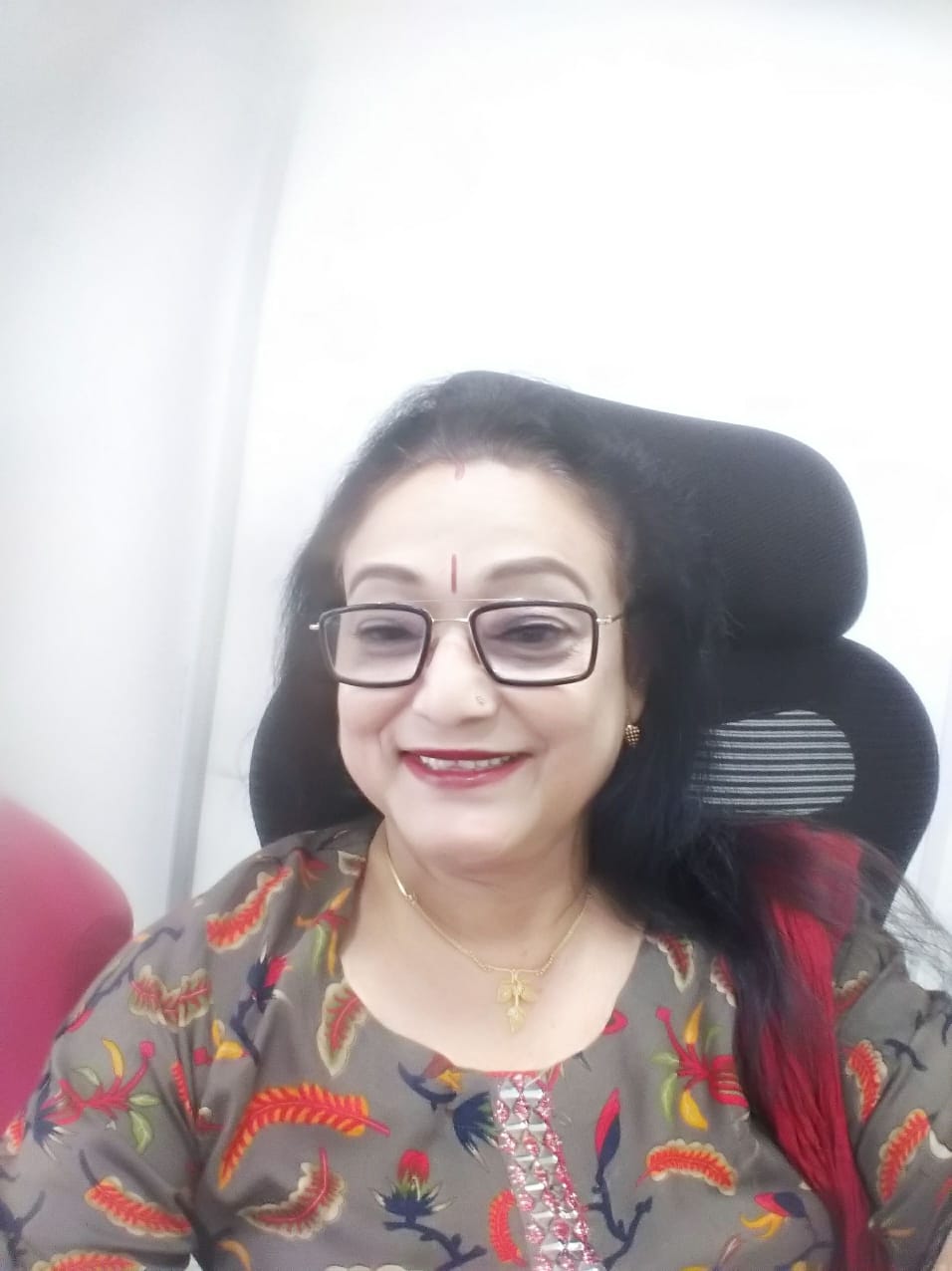
Dr. Nupur Roy
MBBS (Cal) DPH (AIIH & PH) DO (Cal)
Sr. CMO (SAG)

Dr. Tanzin Dikid (PH)
MBBS, MD
Joint Director

Dr. Rameshwar Sorokhaibam
MBBS, MD(CHA), DNB (Health Adm)
CMO(NFSG) & Chief Security Officer

Dr Ramesh Chandra (PH)
MD
Deputy Director
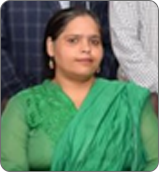
Dr. Suneet Kaur
MD
Deputy Director
Microbiology -Respiratory Viruses and TB Division
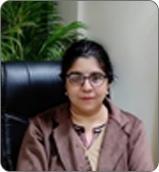
Dr. Simrita Singh (Micro)
MBBS, MD Microbiology
Additional Director & OIC
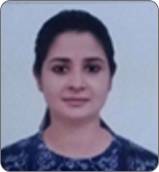
Dr. Nidhi Saini (Micro)
MBBS, MD (Microbiology)
Deputy Director
Enterovirus Division

Dr. Purva Pankaj Sarkate
MBBS, MD, DHM
Joint Director & HoD

Dr. Purbasha Bera (Micro)
MBBS, MD
Deputy Director
Integrated Disease Surveillance Programme

Dr. Himanshu Chauhan (PH)
Joint Director & HoD

Dr. Saurabh Goel (PH)
Joint Director

Dr. Sanket Vasant Kulkarni (PH)
Joint Director

Dr. Pranay Kumar Verma (PH)
Joint Director

Dr Shubhangi D. Kulsange
Joint Director

Dr Jariwala Devang Ashvin kumar
Assistant Director

Smt Meenakshi Sharma (SSS)
Senior Statistical Officer
Establishment and strengthening of new branches of NCDC

Dr. Anubhav Srivastava (PH)
MD
Joint Director & OIC

Dr. Gajjala Siva Prasad
MBBS, DNB
Medical Officer
FINANCE

Dr. Girish Kumar Makhija (PH)
MBBS, MD(CHA), DNB(PSM), DHA
Joint Director & HoD
NCDC, UPGRADATION CELL

Dr. Hema Gogia
MBBS, MD
Assistant Director (PH) & OIC

Sh. Prakash Doval
Assistant Director (Admn.)
NPMU, PM-ABHIM, NCDC BRANCHES, REGIONAL NCDC, MSU

Shri Sachin Kumar Singh (SSS)
SSO
Store
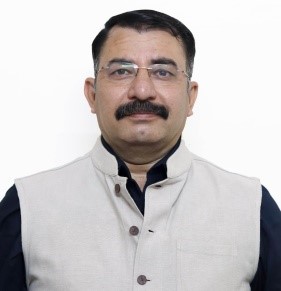
Shri Pankaj Kumar
Store Officer
Dte GHS (Nirman Bhawan Delhi) *

Dr Nishant Kumar (PH)
Joint Director (MoH&FW)

Dr Rupali Roy (PH)
Joint Director

Dr Shikha Vardhan
Joint Director

Dr Navin Verma
Deputy Director

Dr Avinash Sunthlia (GDMO)
Senior Medical Officer
Alwar Branch

Dr. Naveen Chharang
(MBBS, MD(PSM))
Additional Director & OIC

Dr Ankit Yadav
Medical Officer
Bengaluru Branch

Dr.Rajesh L Kademani
MBBS
Additional Charge of OIC (Senior RD, ROH & FW, Bengaluru)
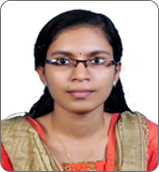
Dr. Sayana Bhaskaran. K
M.B.B.S
Medical Officer & DDO
Coonoor Branch

Dr. S. Sivakumar
M.V Sc.
ADDL. CHARGE Of OIC ( Director, Pasteur Institue of India, Coonoor)
Raipur Branch

Dr Sandeep S. Jogdand
Joint Director & OIC (Additional Charge)
Kozhikode Branch

Dr Ananthesh B G
Assistant Director & OIC
Patna Branch

Dr. Shaukat Kamal
M.Sc. (Medical Entomology), Ph.D. MPH, FISCD
Additional Director & OIC
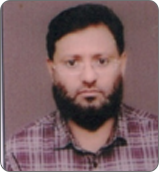
Dr. Mazhar Hussain
MBBS, MD (PEDIATRICS)
CMO (NFSG)
Rajamahendravaram Branch

Dr. Jada Neelima
M.B.B.S., D.V.L.
Senior Medical Officer & OIC
Varanasi Branch

Dr. Prateek Kumar Singh
MBBS
Medical Officer & OIC
Mandate
Mandate
The mandate of the Institute broadly covers three areas viz. services, trained health manpower development and research.
Service
The Institute takes leading role in undertaking investigations of disease outbreaks all over the country employing epidemiological and diagnostic tools. It also provides referral diagnostic services to individuals, community, medical colleges, research institutions and state health directorates. The service component provided by the Institute also includes making available scientific research material, teaching aids, storage and supply of vaccines and quality control of biologicals. A brief of different services provided are mentioned below
- A.Outbreak investigations
The institute investigates and recommends control measures for the out-break of various communicable diseases in the States/UTs all over the country as well as to some neighbouring countries in the South East Asia Region. The institute also undertakes monitoring of outbreaks through-out the country, especially during its early rising phase by collecting information from the states and districts. The institute conducts emergency preparedness training for the officials in the state as well as investigates rumors in cases of diseases that have been considered as eradicated e.g. Smallpox case rumors.
- B.Referral Services
Referral Diagnostic Services: The institute provides referral diagnostic services for various communicable diseases of microbial origin specially for those for which diagnostic facilities are ordinarily not available in hospitals and medical colleges. These include:
- Viral diseases- Poliomyelitis, Measles, Coxsackie virus, other Enteroviruses,Hepatitis virus, AIDS, Rabies, Arbo-viral infections, Rubella, Cytomegalovirus etc.
- Bacterial diseases- Meningitis, Diphtheria, Acute Respiratory Infections, Cholera and newer Entero-pathogens, Plague, Anthrax, Brucellosis ,Rickettsioses etc.
- Mycotic diseases- Common fungal infections, superficial as well as deep.
- Parasitic Diseases- Malaria, , Kala-azar, , Leptospirosis, Hydatidosis.
- C.Other Services
The Institute also provides other important services some of which are as follows:
- Quality Control of Biologicals: The institute routinely provides quality control services for various vaccines like BCG, OPV and diagnostic test kits for AIDS, Hepatitis, Meningitis, etc.
- Storage and supply of vaccines and other biological materials: The institute stores reagents, test kits and vaccines on behalf of the Directorate General of Health Services (DGHS) and distributes to various state health directorates and medical colleges on request. It also provides larvivorous fishes for the biological control of mosquitoes to various public health agencies.
- Entomological investigations: Includes identification of arthropods of medical importance specially during disease out-break situations.
- Evaluation of chemical compounds: The institute undertakes laboratory and field evaluation of insecticides/biocides to meet the requirements of the registration committee of Central Insecticide Board.
- Assessment of biochemical parameters to establish clinical diagnosis e.g.Thyroid function tests etc.
Trained Health Manpower Development
This component of the mandate of the Institute is addressed through the following activities
- A.Training
Special emphasis is given to trained health man-power development that is essential for the successful implementation of different health programmes in the country. Besides the regular training programmes, numerous short-term training activities are conducted every year. The course curricula of these training programmes are designed to develop the necessary need-based skills. The participants to these courses come from different States/Union Territories of India. In addition, trainees from some of the neighbouring countries like Bangladesh, Bhutan, Sri Lanka, Myanmar and Nepal also participate in some of the training programmes. The institute also conducts separate training programmes specifically designed for international participants. Some of these courses are sponsored by international agencies like WHO, UNICEF, World Bank and USAID. The institute has developed training modules on different communicable diseases based on its field experiences, which are extensively used during training programmes at NICD. The trainees in various Epidemiology courses are exposed to the application of computers and related softwares in Epidemiology and disease surveillance.
- B.Expert group meetings
The Institute organizes meetings for formulation of guidelines for surveillance, management, prevention and control of various communicable and non-communicable diseases. The meetings are attended by experts of the respective field, senior administrators of health services of the states, programme managers from medical, veterinary, agriculture and animal husbandry departments.
- C.Supply of teaching and research material
The institute provides teaching material on various communicable diseases in the form of slides, charts, maps, procedure manuals, pamphlets, books etc. to Medical Colleges and Teaching Institutions. Various bacterial and fungal isolates, cell lines, slides of malaria, filaria, kala-azar, rabies, diphtheria, meningococcus, live cultures and preserved materials of arthropods are also provided to medical colleges and research institutions on request.
- D.Fellowships
Scientists, research workers and health professionals, from India and abroad on WHO fellowships are placed in the institute for training and exchange of technical knowledge
Research
Applied integrated research in various aspects of communicable as well as some aspects of non-communicable diseases has been one of the prime functions of the Institute. To achieve this, the institute is actively engaged in research in the following broad areas.
- Applied research in the field of bacteriology, virology, mycology, parasitology, immunology, biotechnology, epidemiology, entomology and quality testing of vaccines and other biologicals with an aim of improving diagnostic capabilities of diseases of public health importance and providing laboratory support to the investigation and control of disease out breaks. The important diseases include Cholera, Polio, Measles, Yaws, Diphtheria, Meningitis, Tetanus, Hepatitis, AIDS, Rubella, Rabies, Dengue, Japanese Encephalitis, Kala-azar, Guinea Worm, Malaria, Filaria, Plague ,Leptospirosis, Anthrax etc.
- Applied field based research through longitudinal surveillance studies of various epidemic prone diseases.
- Laboratory and field oriented research in the transmission dynamics of arthropod borne diseases with the ultimate objective of vector control.
- Evaluation of new formulations of insecticides and biocides and screening of indigenous herbs to evaluate their insecticidal properties. Studies on biological hazards of pesticides.
- In- vitro cultures of organisms, development of reagents, rapid diagnostic tests including molecular techniques using modern equipment and latest technology.
- Research on hormonal disorders
Major Achievements
Major Achievements
The India EIS programme was launched at NCDC in collaboration with US CDC (2012)
The India EIS Programme transitioned to GoI PM-ABHIM (Pradhan Mantri-Ayushmaan Bharat Health Infrastructure Mission). (2021)
The India EIS programme at NCDC receives international recognition in the form of programme accreditation by TEPHINET, a global FETP accreditation body. (2023)
Development of a mounting media (Bhatia media) for the larvae of mosquitoes (1949)
Preparation of identification keys for larvae and adults of Indian Anophelines (1953)
The Regional Filaria Training and Research Centre (RFT&RC), Kozhikode was established. A field station of this Centre, Brugia Malayi Research unit is functioning at Cherthala, Alappuzha District, Kerela (1955)
Preparation of a region-wise identification key for the Indian anophelines (1961)
Establishment of Field station at Kolar, Mysore state to investigate the epidemiology and control of epidemic plague (1963)
Establishment of Regional Filaria Training and Research Centre at Varanasi (1965)
Establishment of Unit for testing of Small Pox freeze dried vaccine manufactured in the country and imported from abroad under National Smallpox Eradication Programme (1965)
Preparation of identification key for Indian anophelines (1965)
Polio Vaccine testing unit started functioning at Division of Microbiology (1968)
Central survey team was formed under filariology division to determine the transmission of filariasis in non-endemic areas of the country (1970)
Establishment of unit for testing and quality control of freeze dried BCG vaccine (1972)
A new culture medium, “NICD medium”, developed to diagnose acute case of cholera within 6 hours (1972)
Field Practice Unit established at Alwar to carry out studies on various communicable diseases (1973)
Detection, for the first time, of existence of zoonotic reservoir of Cutaneous leishmaniasis in the vicinity of Rajasthan Canal Area (1973)
First time detection of resistance against Malathion in Anopheles culicifacies, a vector of malaria (1973)
First time detection of resistance against DDT in Anopheles culicifacies, a vector of Malaria (1973)
Discovered zoonotic focus of human malaria in Greater Nicobar (1973)
NICD declared as Central Water laboratory under Prevention and Control of Pollution Act (GOI) (1974
Establishment of Plague Surveillance Unit (PSU) at Bangalore to develop expertise in detection and control of plague in man and rodents (1975)
NICD played a leading role in the “Small Pox Zero” target in the country (1975)
Establishment of Kala-azar Unit at Patna (1976)
Establishment of In-vitro cultivation of Plasmodium falciparum (1978)
Establishment of field station at Jagdalpur (MP) to intensify research in Malaria (1979)
Guineaworm Eradication Programme was launched (1983)
Communicable Diseases Bulletin was started with the purpose of widespread dissemination of information on epidemic prone diseases (1985)
Cell for monitoring of epidemic prone diseases was established (1985)
Recognized as WHO Collaboration Centre for Rabies epidemiology for South East Asia Region (1985)
Establishment of National Reference Centre for AIDS/HIV (1985)
NICD amongst the first to start Laboratory based training for testing of HIV/ AIDS in India (1986)
Malaria Research Field Station, Jagdalpur (Madhya Pradesh) was taken over by NICD (1988)
Initiation of 9 month Field Epidemiology Training Programme (FETP) with USAID support (1989)
Preparation of identification keys for adults of Anopheles mosquitoes in India (1990)
Polio laboratory recognized as Regional Reference Laboratory for Polio for South East Asia Region (1991)
Division of Biochemistry identified as National Reference Laboratory for monitoring of Iodine Deficiency Disorders (1992)
First time detection of the mosquito larvicidal properties of indigenous plant, Yucca aloifolia (1994)
Establishment of the state-of-the-art BSL-2 Plague laboratory (1995)
Establishment of Division of AIDS incorporating the Reference Centre for AIDS (1995)
Recognized as WHO Collaborating Centre for Field Epidemiology Training Programme (FETP) for South -East Asia Region (1995)
Establishment of the state-of-the-art Biotechnology Laboratory with full fledged facilities for diagnosis (1996)
Yaws Eradication Programme was launched (1996)
Certification of Guinea Worm Eradication by WHO (2000)
Participation in the nationwide multi-centric study on Refinement of H2S-Strip Test for Safe Drinking Water Supply in Rural Areas, sponsored by the Rajiv Gandhi National Drinking Water Mission (Govt. of India) and the UNICEF (2001-2004)
Molecular diagnosis based on DNA fingerprinting developed for 25 important pathogens of public health importance (2002)
Confirmation and containment of Plague outbreak in Himachal Pradesh and Uttaranchal in the shortest possible time (2002 and 2004)
First time detection of mosquito larvicidal properties of indigenous plant, Carica papaya (2004)
Over 200 gene sequences of Indian strains of important human pathogens unveiled by NICD, accepted by Global Genome Bank of NCBI, NIH, USA, submitted to gene bank (2004)
First time detection of the mosquito larvicidal properties of indigenous plant, Ipomoea cairica (2004)
Establishment of Tissue Culture facility for isolation of Arboviruses (Dengue, JE, CHIKV) (2004)
Integrated Disease Surveillance Project launched (2004)
Microbiological evaluation of Solar Disinfection (SODIS) method of drinking water purification (2004-2005)
MoU signed between NICD and GGSIP University, Delhi for PhD courses. NICD recognized as advanced research centre in the School of Medicine & Paramedical Health Services by GGSIP University (2005)
First inventory of Museum Specimens published (2005)
First time detection of JE virus in Culex vishnui mosquitoes from Karnal (Haryana) (2006)
India formally declared elimination of Yaws on 19th September (2006)
International patent granted to a potential bio-control agent, Chilodonella uncinata, for mosquito larval control (2006)
Masters in Public Health (Field Epidemiology) 2 year course started at NICD (2006)
Nodal laboratory for national Avian Influenza surveillance(2006)
First time detected JE virus in Culex vishnui mosquitoes from Saharanpur(UP), and Karnal (Haryana) (2007)
Participation of Central Plague Laboratory in EQAS programme for Plague with National Institute of Communicable Diseases, South Africa (2007)
National patent filed on the invention of desert cooler which prevents the breeding of Aedes aegypti, vector of Dengue and Chikungunya inside the cooler (2007)
Proposal for up-gradation of NICD to NCDC was approved (2007)
First time detected Dengue virus in Aedes aegypti and Ae. Albopictus mosquitoes from Delhi (2008)
First time detected JE virus in Culex vishnui mosquitoes from Baghpat (UP) (2008)
Pilot Projects of control of Leptospirosis and Prevention and Control of Human Rabies started under XI Five Year Plan (2008)
First time identified the soil factors supporting the breeding of Leishmaniasis transmitting sand flies in India (2008)
Member of National Consortium of Laboratories, testing quality of diagnostic kits for HIV (2008)
100 year Celebration. NICD re-designated as NCDC (2009)
Establishment of Centre for Non-communicable Disease, Centre for Environment and Occupational Health and Division of Climate Change at NCDC (2015)
India declared Yaws free (2016)
Notified as National Coordination Centre for AMR Containment (2017)
Completed National Level TOTs for Medical Officers from 29 states and 4 UTs to roll out Population Level Screening for Non-Communicable Disease (2017)
Functions
Functions
Trained Health Manpower Development
Special emphasis is given to trained health manpower development that is essential for the
successful implementation of different health programmes in the country. Besides the regular training programmes,
numerous short-term training activities are conducted every year. The course curricula of these training programmes
are designed to develop the necessary need-based skills. The participants to these courses come from different
States/Union Territories of India. In addition, trainees from some of the countries like Bangladesh, Bhutan, Sri
Lanka, Myanmar, Nepal, Maldives, Timor Leste and North Korea also participate in the training programmes. The NCDC
also conducts customized training programmes for international participants. These courses are sponsored by
international agencies like WHO, UNICEF, CDC and USAID.
Training programmes carried out by NCDC are:
- 1.India EIS Programme
NCDC conducts two year India Epidemic Intelligence Service (EIS) Programme in
collaboration with CDC, Atlanta. The programme focuses on hands-on training in epidemiologi service
for public health professionals. Trainees engage in outbreak investigation, designing and analyzing
epidemiological studies, analysis and evaluation of surveillance data, scientific communication, and
other activities in preparation for careers as field epidemiologist. Every year nominations are
invited by an advertisement. Eligibility criteria and other details of the programme are also
available on NCDC website.
- 2.MPH (FE) Course
NCDC conducts two year Master in Public Health (Field Epidemiology) course
affiliated to the Guru Gobind Singh Indraprastha University, Delhi. Total numbers of seats are 20
out of which two seats are earmarked for WHO sponsored candidates.
- 3.Regional Field Epidemiology Training
Programme (FETP)
A tailor made programme for the middle and senior level health personnel from
countries of South East Asia Region to strengthen their epidemiological skill. This three month
programme is conducted once a year.
- 4.Regional Training Programme on Prevention and
Control of Communicable Diseases
The four week programme is conducted once every year and is designed to augment
the capacity to understand disease dynamics in community and intervention for its prevention and
control.
- 5.Vector Borne Diseases
Training of four weeks in Vector Borne Diseases is carried out in partnership
with NVBDCP, NIMR (ICMR) and NIHFW.
- 6.Sc., MPH and Ph.D. Programme
NCDC is recognized as the approved centre for guiding the students under Guru
Gobind Singh Indraprastha University, Delhi other Universities.
Applied research in various aspects of communicable as well as non-communicable diseases
has been one of the prime functions of the NCDC. To
achieve this, the NCDC is actively engaged in research in the following broad areas:
- Applied research in the field of bacteriology, virology, mycology, immunology, parasitology and
quality control of diagnostic reagents with an aim of improving diagnostic capabilities of diseases
of public health importance and giving laboratory support to the investigation and control of
disease outbreaks. The important diseases include Cholera, Dengue, Diphtheria, Filaria, Fungal
infections, Hepatitis, HIV/AIDS, Influenza, JE, Kala-azar, Leptospirosis, Malaria, Measles,
Meningitis, Rabies, Rubella, Scrub Typhus, Soil Transmitted Helminthis, Tuberculosis, and Zika Virus
Disease etc. - Field based research through longitudinal studies of various epidemic prone diseases.
- Laboratory and field oriented research in the transmission dynamics of arthropod borne diseases with
the ultimate objective of vector control. - Evaluation of new formulations of insecticides and biocides and screening of indigenous herbs to
evaluate their insecticidal properties - Studies on biological hazards of pesticides
- In-vitro culture of pathogens, rapid diagnostic tests including molecular techniques
The NCDC provides various referral services and technical support to individual patients,
community, medical colleges, research institutions and State
Health Directorates. These include diagnostic and clinical, teaching aids, storage and supply of vaccines and
quality control of biological. The different
services available are given below:
- 1.Diagnostic:
NCDC provides referral diagnostic services for various communicable diseases,
some of which are ordinarily not available in hospitals and medical colleges. These include
diagnosis of Cholera, Dengue, Diphtheria, Filaria, Fungal infections, Hepatitis, HIV/AIDS,
Influenza, JE, Kala-azar, Leptospirosis, Malaria, Measles, Meningitis, Rabies, Rubella, Scrub
Typhus, Soil Transmitted Helminthes, Tuberculosis, and Zika Virus Disease.
- 2.Storage and supply of Diagnostic
Reagents:
The NCDC stores reagent and test kits on behalf of the Directorate General of
Health Services and distributes to various State Health Directorates and medical colleges.
- 3.Entomological Services:
Includes identification of arthropods of medical importance specially during
disease outbreak situations, provides larvivorous fishes for the biological control of mosquitoes to
various public health agencies.
- 4.Quality Control of Insecticides:
The NCDC undertakes laboratory and field evaluation of insecticides/biocides to
meet the requirements of the Registration Committee (RC) of Central Insecticide Board (CIB).
- 5.Supply of research materials:
Various bacterial and fungal isolates, virus cell lines, Malaria, Filaria,
Kala-Azar, Rabies, Diphtheria, Meningococcus slides, live cultures and preserved materials of
arthropods are provided to medical colleges and research institutions.
- 6.Outbreak investigations:
The NCDC investigates and recommends control measures for the outbreaks of
various communicable diseases to the States/UTs all over the country as well as to some
neighbouring countries.
- 7.Verification of rumours of eradicated
diseases:
Guineaworm, Yaws and Poliomyelitis.
- 8.Supply of teaching materials:
The NCDC provides teaching materials on various communicable diseases in
the form of slides, charts, maps, procedure manuals, pamphlets and books etc.
Publications
CD Alert is a technical bulletin of the NCDC, Directorate General
of Health Services, to disseminate information on various aspects of communicable diseases to medical fraternity
and health administrators. It is widely circulated to different parts of the country including Directorates of
Health Services of different States, Districts, Primary Health Centres, Medical Colleges and individuals.
NCDC Newsletter is a quarterly publication with the purpose to provide
a forum for sharing information on outbreaks, programme updates and information on any event of public health
importance.
Former Directors Of NCDC
Former Directors of NCDC
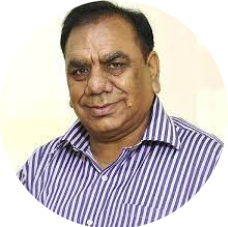
Dr. Sujeet Kumar Singh
2018-2022
Dr. A.C Dhariwal
2017-2018
Dr. S. Venkatesh
2014-2017
Dr. L. S. Chauhan
2010-2014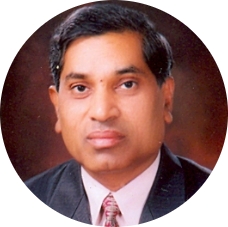
Dr. Shiv Lal
2002-2010
Dr. K. K. Datta
2000-2001 & 1994-1997
Dr. Jotna Sokhey
1997-2000
Dr. T. Verghese
1990-1994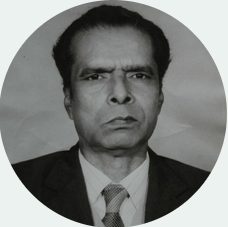
Dr. P. C. Roy
1989-1989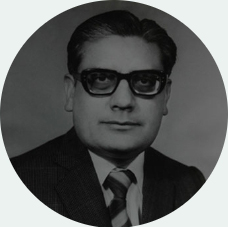
Dr. P. N. Sehgal
1986-1987
Dr. R. N. Basu
1984-1986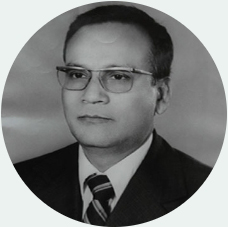
Dr. A. N. Raichowdhury
1981-1984
Dr. Sharad Kumar
1979-1981
Dr. R. K. Sanyal
1977-1979
Dr. M. I. D. Sharma
1971-1976
Dr. N. G. S. Raghavan
1965-1971
Dr. J. B. Srivastav
1965-1967
Dr. S. P. Ramakrishnan
1958-1965
Dr. B. Ananthaswamy Rao
1927-1936
Lt. Col. Jaswant Singh
1947-1957
Maj. Gen. Sir Gordon Covell
1937-1947
Brigadier J.A. Sinton
1927-1936
Sir Richard Christophers
1909-1927NCDC Staff
NCDC Staff Details
In position Staff at NCDC Head Quarter As on 01.03.2018
GJ
Smt. G. J. Jayalakshmi
BK
Sh. Balram Kashyap
BK
Sh. Beeru Kumar
JM
Sh. Joy Mukherjee
HM
Sh. H.L. Meena
RK
Sh. R. Ravi Kumar
MM
Sh. Mohd. Muzib
AV
Sh. A. K. Varma
MK
Sh. Mukesh Kumar
RR
Sh. R.S. Rautela
RJ
Sh. Raja Raman Jha
SP
Dr. (Mrs.) Sunita Patel
DS
Sh. D.K. Saxena
PK
Dr. Pramod Kumar
NK
Smt. Neeru Kakkar
SP
Ms. Shilpi Dhan
PK
Dr. (Mrs.) Alice Verghese
Y
Smt. Yosman
R
Sh. Raishuddin
HG
Sh. Harish Chand Gahlot
MC
Sh. Mahesh Chandra
BS
Sh. Bansi Lal Sharma
VY
Sh. Vikram Jeet Yadav
SM
Smt. Surbhi Mahajan
P
Dr. (Mrs.) Priyanka
SK
Sh. Sameer Kerketta
RS
Sh. Ramesh Sharma
RK
Sh. Rajesh Kumar
RJ
Sh. Raja Raman Jha
SP
Dr. (Mrs.) Sunita Patel
DS
Sh. D.K. Saxena
PK
Dr. Pramod Kumar
NK
Smt. Neeru Kakkar
SP
Ms. Shilpi Dhan
PK
Dr. (Mrs.) Alice Verghese
Y
Smt. Yosman
R
Sh. Raishuddin
HG
Sh. Harish Chand Gahlot
MC
Sh. Mahesh Chandra
BS
Sh. Bansi Lal Sharma
Organisations Structure
Organisations Structure
The NCDC is under the administrative control of the Directorate General of Health Services, Ministry of Health and Family Welfare, Government of India. The Director, an officer of the Public Health sub-cadre of Central Health Service, is the administrative and technical head of the Institute and is also Programme Director of Integrated Disease Surveillance Programme (IDSP), National Anti-Microbial Resistance (AMR) Containment Programme, National Rabies Control Programme (NRCP), Programme for Prevention and Control of Leptospirosis (PPCL), Inter-sectoral Coordination Programme for Prevention and Control of Zoonotic Diseases (ISCPCZD) and National Programme on Surveillance of Viral Hepatitis (NPSVH) in different geographical locations.
The NCDC has its headquarters in Delhi and has eight outstation branches located at Alwar (Rajasthan), Bengaluru (Karnataka), Kozhikode-Calicut (Kerala), Coonoor (Tamil Nadu), Jagdalpur (Chhatisargh), Patna (Bihar), Rajahmundry (Andhra Pradesh) and Varanasi (Uttar Pradesh). There are 14 Technical Centres/Divisions at the headquarters viz. Centre of Epidemiology, Division of Microbiology, Division of Zoonosis, Centre for Medical Entomology & Vector Management (CME&VM), Integrated Disease Surveillance Programme (IDSP), Centre for AIDS & Related Diseases (CARD), Division of Biochemistry & Toxicology, Division of Biotechnology, Division of Parasitic Disease (DPD), Division of Malariology & Coordination (M&C), Centre for Environment & Occupational Health (CE&OH), Centre for Non-Communicable Diseases (CNCD), Statistical Monitoring & Evaluation Centre (SM&EC) and Division of Planning, Budget & Administration (PBA). In each centre/division, there are sections and laboratories dealing with different communicable and non-communicable diseases. The activities of each division are supervised by the officer-in charge supported by medical and non-medical scientists, research officers and other technical and paramedical staff. The NCDC branches are also equipped and staffed to carry out field studies, training activities and research. The NCDC at its headquarter has 58 Group A officers (Central Health Services and Non-Medical Scientists), 10 Group B (Gazetted), 111 Group B (Non-Gazetted) and 137 Group C officials besides about 37 contractual consultants/support staff. The existing eight NCDC branches have 81 officials. The Budget allocated for NCDC is Rs. 233.04 crores (approx. USD 35 million) for financial year 2017-18 including for upgradation of NCDC.Organogram of NCDC

Directorate General of Health Services Ministry of Health & Family Welfare Government of India

National Centre for Disease Control
(Formally known as NICD)
Centre for AIDS & Related Diseases

Integrated Disease Surveillance Programme

Division of Epidemiology

Division of Biochemistry & Toxicology

Division of Microbiology

Center for Medical Entomology & Vector Management

Division of Malariology & Coordination

Division of Zoonosis

Division of Statistical Monitoring & Evalution

Centre for Non- Communicable Diseases

Division of Planing Budget & Administration

Division of Parasitic Diseases

Centre for AIDS & Related Diseases

Coonoor Branch

Alwar Branch

Jagdalpur Branch

Patana Branch

Bengaluru Branch

Calicut Branch

Varanasi Branch

Rajmundary Branch









